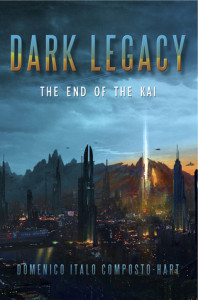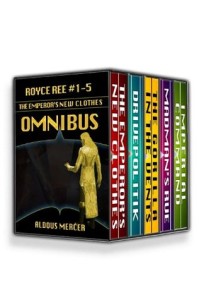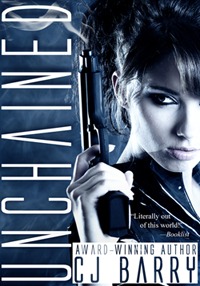 Domenico Italo Composto-Hart‘s Dark Legacy is free at both Amazon and Lulu. This is the second review in my month-long challenge to read only authors I ‘know.’
Domenico Italo Composto-Hart‘s Dark Legacy is free at both Amazon and Lulu. This is the second review in my month-long challenge to read only authors I ‘know.’
Description from Goodreads:
The End of the Kai of the Dark Legacy Cycle details the violent end of the Kai Order – an ancient, spiritual guild of warrior guardians and priestesses who have sworn their lives to protect the Oracle Queen of Atlantis – at the hands of Maniok, the being referred to as the “Great Evil” in the age-old Song of the Oracle King.
It is a chronicle of Arkan, the last Kai guardian, and his desperate attempt to save the life of his priestess who carries his unborn son, and his escape from Atlantis.
Review:
I find myself in an odd position here. I picked this book up in good faith, but found that it isn’t what I thought it was. I would say, ‘what it presents itself to be,’ but I’m not willing to allot the blame. So, I’m going with not what I thought.
You see I’ve just discovered that Dark Legacy: The End of the Kai is in fact a brief prequel and then the first three chapters of the book Dark Legacy: Trinity, which is book one of the series.
I hate this kind of thing. I just want to be able to pick up a book and know it’s the book, not part of it or an addition to it, or a snippet of something else. If I wanted to read Trinity I’d have picked it up, not a separately bound (well, digitally bound) portion of it. Seriously people! When did this become OK?
So, at 30%, when The End of Kai ended and Trinity was to begin, I bailed. I’m not about to knowingly start a book that I don’t have the end to. In fact, I resent that the author set me up to be in just that position. It feels like a manipulation and a way to trick readers into buying something. (Granted, The End of Kai is free, so it wouldn’t be a second purchase.) I’m not saying it is a manipulation, just that it feels like one.
So please take note. This review is for the first 30% (~50 pages) of this ‘book’ only. Anything after that would be a different book, or part of one and I neither read it nor am reviewing it. I’m not calling it a DNF, because I finished the prequel. But I didn’t read the last 70% of the file.
I found the writing here, while technically fine, pretentious. Or rather, if I was willing to stretch grammar close to it’s breaking point, portentous. The word really is an adjective meaning, of/like a portent and a portent is a sign or warning that something, especially something momentous or calamitous, is likely to happen. So, grammatically it doesn’t really mean what I’m about to use it for.
But anyone who reads a lot of sci-fi or fantasy will be familiar with the heavy, atmosphere-building tone frequently used during passages of prophecy or symbolically significant events. This whole book reads like that…like it’s a portent, like it has meaning beyond the words on it’s pages, like it considers itself more than it is.
I think it’s because it’s a prequel and designed to be a lead-in to book one. If I’m honest, I’m always a little uncomfortable with prequels. I’m never entirely sure when I’m supposed to read them, before the first novel or after the series as a bonus. Plus, I’ve found that when written after the main book(s) they tend to skimp on details, assuming the reader is already familiar with the world and/or characters.
I can’t accuse this book of that. I thought the world was well defined (and really intriguing). But that’s about all it is. There are no mentionable characters, really. This isn’t a story of it’s own, so much as a, ‘hey look, this happened. Don’t you want to know what happens next?’ The book starts with some random street urchin that plays no significant role other than providing a POV, then we see the world through the eyes of a crow (yes, a crow), meet some dying religiosos, a Darth Vador-like bad guy who has some past relation to a couple of fleeing lovers (none of which we learn). We meet them. That’s all. We pass them by while moving on to bigger, better things. Nothing more.
Now, the writing is lyrical and pretty. And while it worked for 50 or so pages, much more of it would have started to grind on my nerves. It felt very tense. Where does this leave me? It’s well written, an interesting world and what is probably an interesting story…but also almost none of that is enough to make me happy with The End of Kai. It’s not enough on its own and I’m pretty irked by its mere existence. So, not on my recommended list unless you go in planning to read the series.


